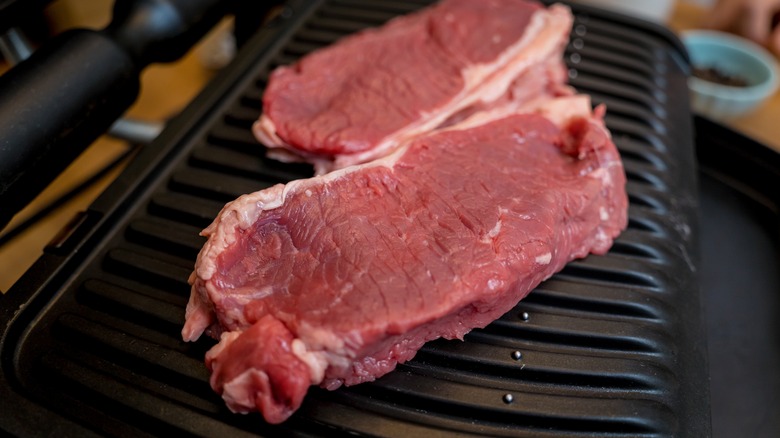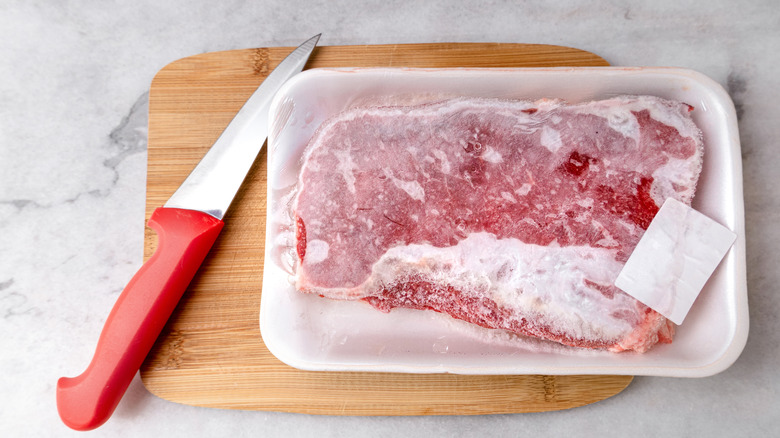What Does Bad Steak Smell Like?
At some point, we all discover that something in our fridge has gone bad. Maybe you bought it and forgot about it, or maybe the grocery store was a little too optimistic about their best-by date. In any case, there are some clear ways to tell whether your cut of beef has just died a second death. Mold is the easiest to spot, as is gross liquid leaking from it (caused by decomposed myoglobin in the muscles) or general discoloration (caused by both myoglobin and hemoglobin in the blood). Bad steak tends to get slimy, too.
What about smell, though? Like plenty of other foods, a rotting steak will smell like sour ammonia, or the infamous "rotting egg" smell of sulfur. If you're not sure whether or not your steak passes the smell test, that's a decent sign that it's still alright. A bad steak doesn't just have a faint odor; it has a noticeable, rancid stink to it. On the other hand, fresh beef generally doesn't have a strong smell. Fresh steak might smell faintly metallic, but this is completely normal because beef naturally has iron in it.
The rotten egg smell of bad steak
Steaks spoil the same way as everything else in the back of your fridge: It's exposed to germs. Once the meat is exposed to air, all sorts of bacteria, mold, or yeast will find their way onto the food, and certain chemical reactions begin taking place. Hydrogen sulfide is a specific chemical infamous for its rotten egg smell, and both that and pungent ammonia are commonly produced by decomposing foods. Cold, dry environments like the fridge can slow bacterial growth, but they can't stop it; the steak will still decompose.
Meat of any kind can be cross-contaminated by other spoiling foods, so if you keep your steak too close to other foods and it's not sealed in an airtight container, that's a storage mistake ruining your food. Besides keeping it separate, keep it on the bottom shelf so there's no chance of those runny myoglobin liquids leaking onto other food. Once you've cooked the steak, the best way to keep leftovers from spoiling is to stick them in the fridge right away when you're done eating to minimize the amount of time it's left out at room temperature.
How long until steak starts to smell?
If it's stored well, a steak should last about three to five days in the fridge before you're likely to notice that rotten egg smell. Ground beef spoils faster than whole cuts because there's more surface area that's exposed to potential bacteria in the air. With either steak or ground beef, freezing it will help it last longer. Steak can be safely frozen for up to a year.
It's worth mentioning that the type of bacteria which spoils food isn't always the same kind of bacteria that can make you seriously ill. "Spoilage bacteria" decompose foods and give them foul odors, and they range from familiar faces like mold to certain kinds of bacteria. However, they don't carry much risk of threatening illness. More dangerous pathogens like salmonella and E. coli can still be found in meat that doesn't smell or look spoiled. This isn't to say you should eat spoiled steak — you should toss it away because it's disgusting — but that spoilage isn't the only concern with a bad steak. Cooking steaks at the right temperature is the best way to deal with pathogens.


